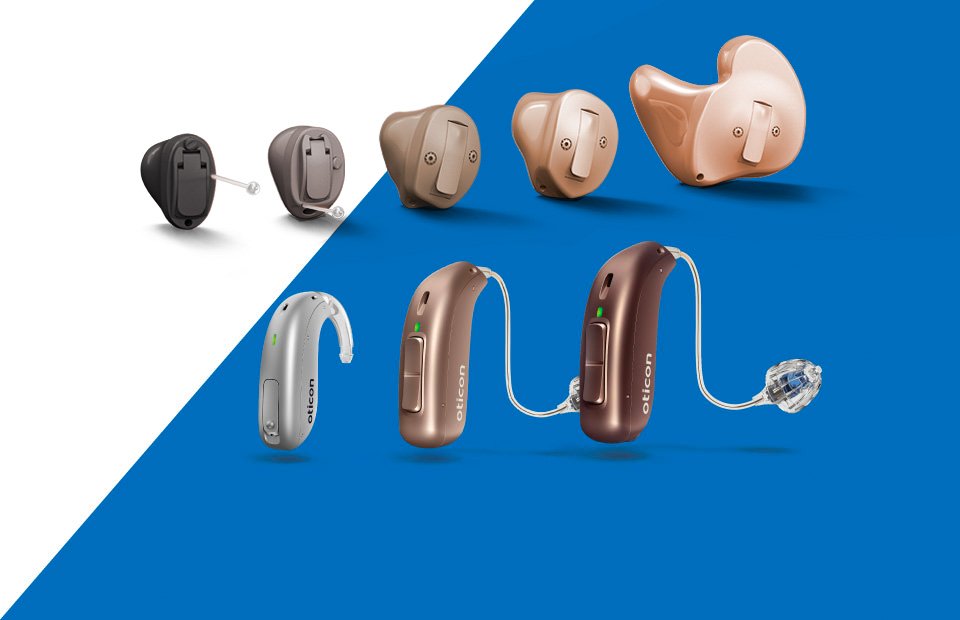There is good news for those suffering from hearing loss—you can now buy a hearing aid without having a doctor’s examination or a prescription, thanks to a new Food and Drug Administration (FDA) rule. It allows for the retail sale of hearing aids for people with mild to moderate hearing loss. A report by the Federal Government estimated that 28.8 million people could benefit from a hearing aid, but currently only 1 out of 5 people who need one get it.
Hope For Seniors With Significant Hearing Loss
Thanks to a cochlear implant (CI)—a surgically imbedded bionic ear, many seniors with significant hearing loss, some even deaf, have been able to regain their hearing after an operation which seems no less than a miracle. Unfortunately, only 5-7% of those who could benefit from the surgery opt to get the surgery. A scant 739K of them have been implanted worldwide. That’s sad because loss of hearing can lead to other health issues such as cognitive decline. The decisive factor in whether or not you will benefit from CI is that you have a healthy auditory nerve. “Hearing is a major mode of communication,” J. Thomas Roland Jr., a surgeon and chairman of the Department of Otolaryngology—Head and Neck Surgery at NYU, told AARP Bulletin. “If you give that back to someone, the brain is rocking again. It is doing what it is supposed to do,” he said.
Monterey, CA Tips For Warding Off Alzheimer’s Disease
Regular readers of my blog know that both my father and my grandfather had Alzheimer’s disease when they passed away. It’s a terrible disease for which there is no cure. However, there are ways that you can try and keep the disease at bay including:
- Protect your heart – Four major risk factors directly relate to heart health: high blood pressure, obesity, diabetes and smoking. Work towards keeping blood pressure and cholesterol low by eating a healthy diet.
- Exercise – According to Dr. Richard Isaacson, this can be the brain’s first defense against amyloid plaque. Try and get at least thirty minutes of exercise per day.
- Stay Socially and mentally active – Getting together with family and friends can be difficult during the COVID pandemic, but getting social stimulation is important, even if you have to do it over a zoom call.
- Avoid head injury – This is easier said than done, but studies have found that even mild head trauma can result in dementia. Wear a seatbelt, play sports safely and treat any head injury immediately.
- Treat depression, hearing loss, and substance abuse – Excessive alcohol consumption, hearing loss and depression all increase the risk for dementia.
Source: American Brain Foundation and Brain Life, the Academy of Neurology’s patient and caregiver magazine and website.
If you or a family member are struggling with Alzheimer’s disease or some other type of dementia, go talk to the good folks at the Alzheimer’s Association’s Monterey Chapter in Ryan Ranch. They also have a 24-hour hotline you can call at 1800-272-3900.
OTC Hearing Aides Will Hit The Market In 2022
After a 90 day public comment period expires in the middle of January with the Food & Drug Administration regarding allowing hearing aids to be sold without a prescription, the FDA will write a final version of the rule that will be based, in part, on feedback from the public and industry groups. This will serve as a guideline for manufacturers to start making the devices, which could be sold at Costco, CVS, Safeway and other retail outlets. “I think the soonest these devices will be available would be the second half of next year,” Barbara Kelley, the executive director of the Hearing Loss Association of America, told AARP Bulletin December 2021 Edition, page 4). This should lower the cost significantly from current prices of $2K to $6K per pair.





